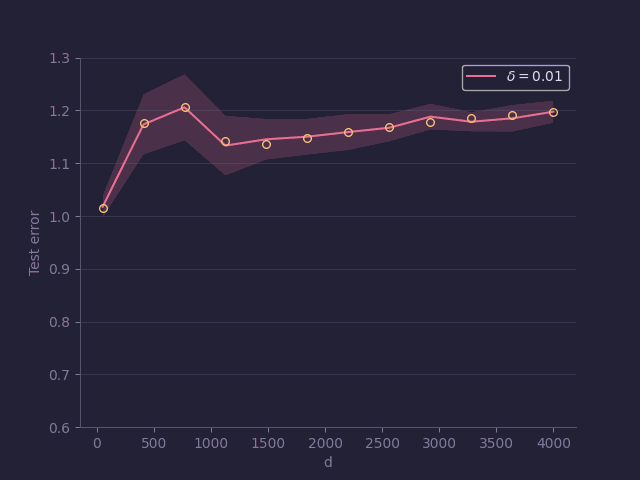Theory of machine learning
Why do highly over-parametrized deep neural networks exhibit exceptional generalization capabilities? Are neural networks sensitive to the distribution of their inputs?
Machine learning and data science provide a rich source of questions that can be studied with tools from random matrix theory, high-dimensional probability, and statistics. Simplified or “toy” models (such as kernel methods, random features, and other tractable surrogates of neural networks) offer a way to isolate key mechanisms behind generalization, optimization, and representation learning. These perspectives have clarified both the strengths and limitations of kernel-like models, highlighted the central role of feature learning, and revealed many surprising (and not so surprising) high-dimensional phenomena. At the same time, much remains poorly understood, making this an active area for developing new mathematical ideas.
